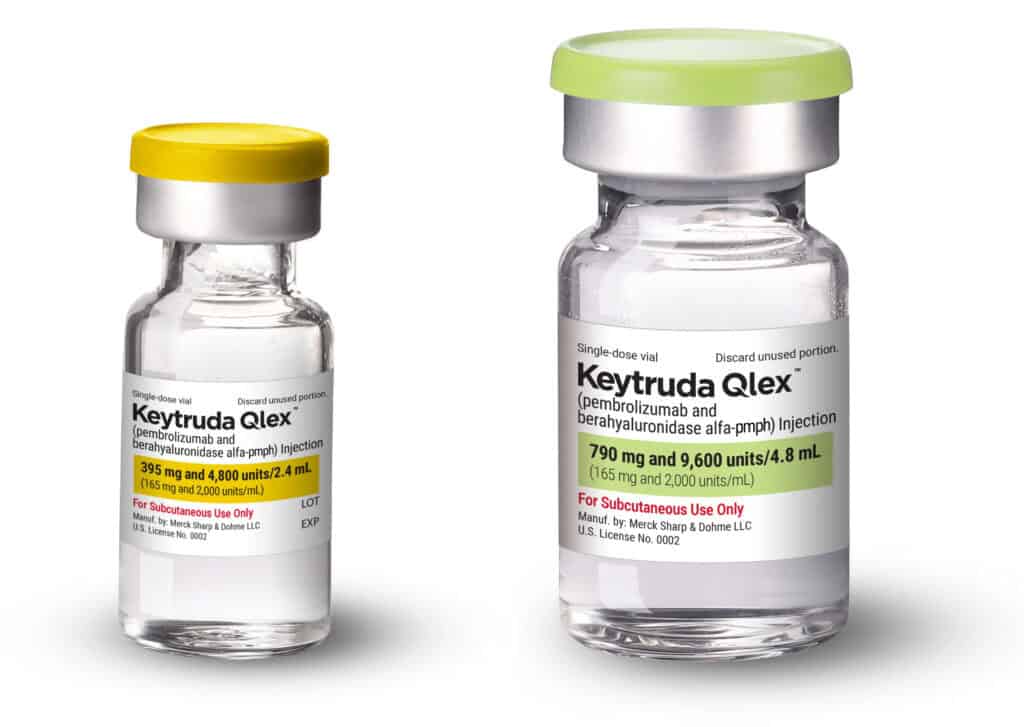In another significant step toward making cancer treatment more convenient and accessible for patients, the U.S. Food and Drug Administration (FDA) has approved a new under-the-skin (subcutaneous) formulation of the widely used immunotherapy Keytruda® (pembrolizumab) for adolescent and adult patients with multiple types of solid tumors.

Traditionally, Keytruda has been administered directly into the vein via an intravenous (IV) infusion, which takes approximately 30 minutes. Now, some patients can receive the very same treatment through a quick under-the-skin injection that can be completed in as little as one minute.
Keytruda works by blocking PD-1, a key immune checkpoint protein that cancers use to evade the immune system. Since its initial approval in 2014, Keytruda has revolutionized cancer care, with over 40 FDA approvals across a number of tumor types, benefiting a broad range of patients.
While lifesaving, IV infusions can create significant logistical challenges: patients must travel to infusion centers, adjust work and/or family schedules, and commit time to the infusion itself. Such hurdles can chip away at patients’ quality of life, making an already difficult journey even more challenging.
The new subcutaneous (SC) version of Keytruda, called Keytruda Qlex, changes that experience. This shorter, more convenient procedure can be delivered in a wider variety of healthcare settings — from major hospitals to local community clinics — reducing both time and travel burdens.
For patients, this means more flexibility, less disruption, and more time for life outside of cancer care. By easing the treatment process, this new injectable option allows patients to focus on living, rather than scheduling their lives around infusions.
2025 Cancer Immunotherapy Insights + Impact Report
Explore how immunotherapy is reshaping cancer care. CRI’s 2025 Cancer Immunotherapy Insights and Impact report maps over 150 FDA approvals since 2011—including 17 in 2024—and shows how immune-based treatments are transforming lives. Essential reading for patients, researchers, and advocates alike.

The approval of Keytruda Qlex joins a growing list of recent SC approvals of immunotherapies traditionally given by IV, including the widely used checkpoint inhibitors Opdivo (nivolumab) and Tecentriq (atezolizumab), which can both now be administered in 5–7 minutes. The even faster 1–2 minute administration of Keytruda Qlex represents a growing emphasis on patient accessibility and convenience, reflecting a broader shift towards making cancer treatment more manageable. Each step reflects a commitment not only to improving survival but also to improving the treatment journey itself.
Researchers are also exploring whether, one day, certain immunotherapies could be safely self-administered at home, much like insulin injections. While not yet approved, this possibility highlights the momentum toward patient-centered care that minimizes disruption of daily life without compromising treatment safety or effectiveness.
At CRI, we celebrate these advances that give patients more control, more options, and more of the precious time they deserve. Continued progress like this is only possible through sustained research investment and donor support — together, we are helping to ensure that the future of cancer treatment is as compassionate as it is effective.
